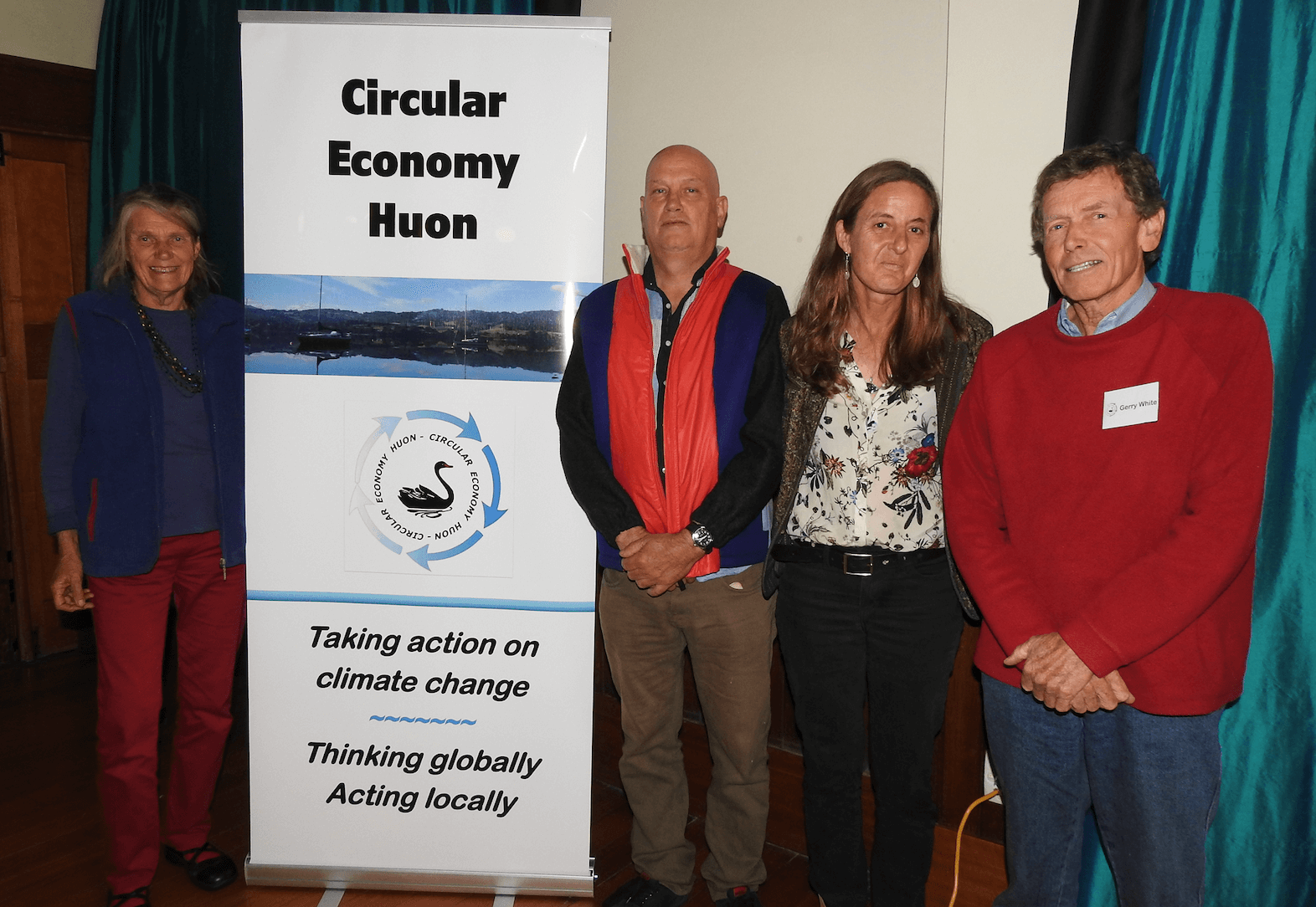Circular Economy Huon (CEH), a grassroots organisation formed to look at innovative ways that the Huon Valley can reduce its carbon footprint and contribute to climate change solutions, has responded to the Huon Valley Council’s (HVC) call for ideas to assist in the region’s recovery from the COVID-19 pandemic.
“CEH is focused on reducing the carbon footprint of the Valley and maximising the use of resources, especially local resources, to create a more sustainable and fairer future,” said CEH spokesperson Gerry White.
“We feel that, as far as possible, that approach should be taken, with the requirement for HVC to reduce expenditure because of the financial impact of the pandemic COVID-19.
“It is important that the council recognises that, while the impact of COVID-19 is considerable, the ongoing impact of climate change will be far greater and over a much longer time period.
“For this reason, it is important that the actions taken to lower the effects of the pandemic also contribute to a positive reduction in CO2 to mitigate climate change and prepare for adaptation.”
CEH has been lobbying council to take climate change action for four years and says that, to date, the budgetary allocation for climate change mitigation has had little impact and actions that have been foreshadowed have taken too long to be delivered.
“In so many ways COVID-19 is a changemaker and can also be seen as an opportunity,” said Mr White.
“HVC should be encouraged to take the opportunity to apply a zero sum approach to budgeting for 2020/21 and beyond.”
CEH believes that the 2020/21 asset renewal programme should be seriously re-evaluated, using discretion to defer scheduled projects so that funds can be spent on more critical areas.
They suggest that the practice of working from home and virtual meetings should be continued post COVID-19 as much as possible, reducing CO2 emissions and traffic congestion, as well as freeing up office space, which could potentially be sub-let or sold.
This would also reduce the cost of running council owned vehicles and, potentially, reduce the number of vehicles required.
CEH recommends selling any under-utilised vehicles and analysing the benefits of exchanging internal combustion engine vehicles for quality second-hand electric vehicles.
They also suggested that HVC could provide staff with Green cards, rather than private vehicles, to encourage and support the use of public transport in the region.
Like other organisations and individuals, CEH is calling for a review of HVC staff remuneration.
“With some staff no longer having employment at the council and others fulfilling different roles, staff pay needs to be addressed, so that the community is comfortable that the council is playing its role in these difficult times,” said Mr White.
“Salary realignments need to be introduced for all HVC staff and councillors, from now to the end of the 2021 financial year.”
CEH also see the council run medical practices, Geeveston Medical Centre and Dover Medical Centre, as non-core businesses, which would be better serviced by the State Government, who are responsible for healthcare provision around Tasmania.
“At the end of the lease of the Cygnet Medical Centre in 2022, that facility could also be taken over by the State Government,” said Mr White.
“It really doesn’t make sense for health to be dealt with by all three levels of government, and COVID-19 has demonstrated the need for more integrated health services.”
CEH calls for broader support for local industry and education and training, to balance the sup- port for tourism.
“Historically HVC has provided support for tourism at the expense of other industries,” said Mr White.
“It is suggested that serious consideration needs to be given to how the council could provide more equitable support for all businesses across the Valley.
“It is timely to think more creatively about the expenditure of council funding, instead of inject- ing money into promoting yet another rebranding of the touring route.
“We suggest that resources and money should be redirected from Huon Valley branding and channelled into developing a Huon Valley Circular Economy (HVCE) Chamber of Commerce.
“The aim of such an organisation would be consistent with council’s Community Support Programme, which is to support the recovery of local businesses and not-for-profit community groups, and could include analysing the business opportunities stemming from COVID-19, and help with reshaping
business and industry for a low carbon economy.” The group is hoping that providers, both government and private, across the Huon Valley can be brought together to ensure that education and training is both targeted and integrated with industry. They say that a Huon Valley education and training taskforce would bring all facets of education, training and research together under one umbrella to facilitate communication and planning. “There are likely to be three specific impacts of COVID-19 in terms of education,” said Mr White.
“It has already impacted on the ongoing development of young people, secondly, as change occurs in the post COVID world, the emphasis of training and employment opportunities will change, and thirdly, retraining and further education will be needed for people that have been put out of work and the changing business environment.”
CEH has also identified nine potential employment and development projects that they believe would assist in transitioning to a positive post COVID Valley community.
1. Develop an agriculture/horticulture centre of excellence for research, education and training.
2. Building social housing as a priority, rather than building roads.
3. Improving thermal efficiency for low income households to improve a variety of outcomes, including health and equity.
4. Adopt strategies to provide solar based energy systems for low income houses.
5. Transition the tourism industry so that it is more appropriate for the economy of the future.
6. Develop a regional organic waste processing facility.
7. Create employment from waste recycling.
8. Develop a cohesive community transport network based on existing local resources.
9. Facilitate improved digital connection, capacity and equity for the Huon Valley community.
